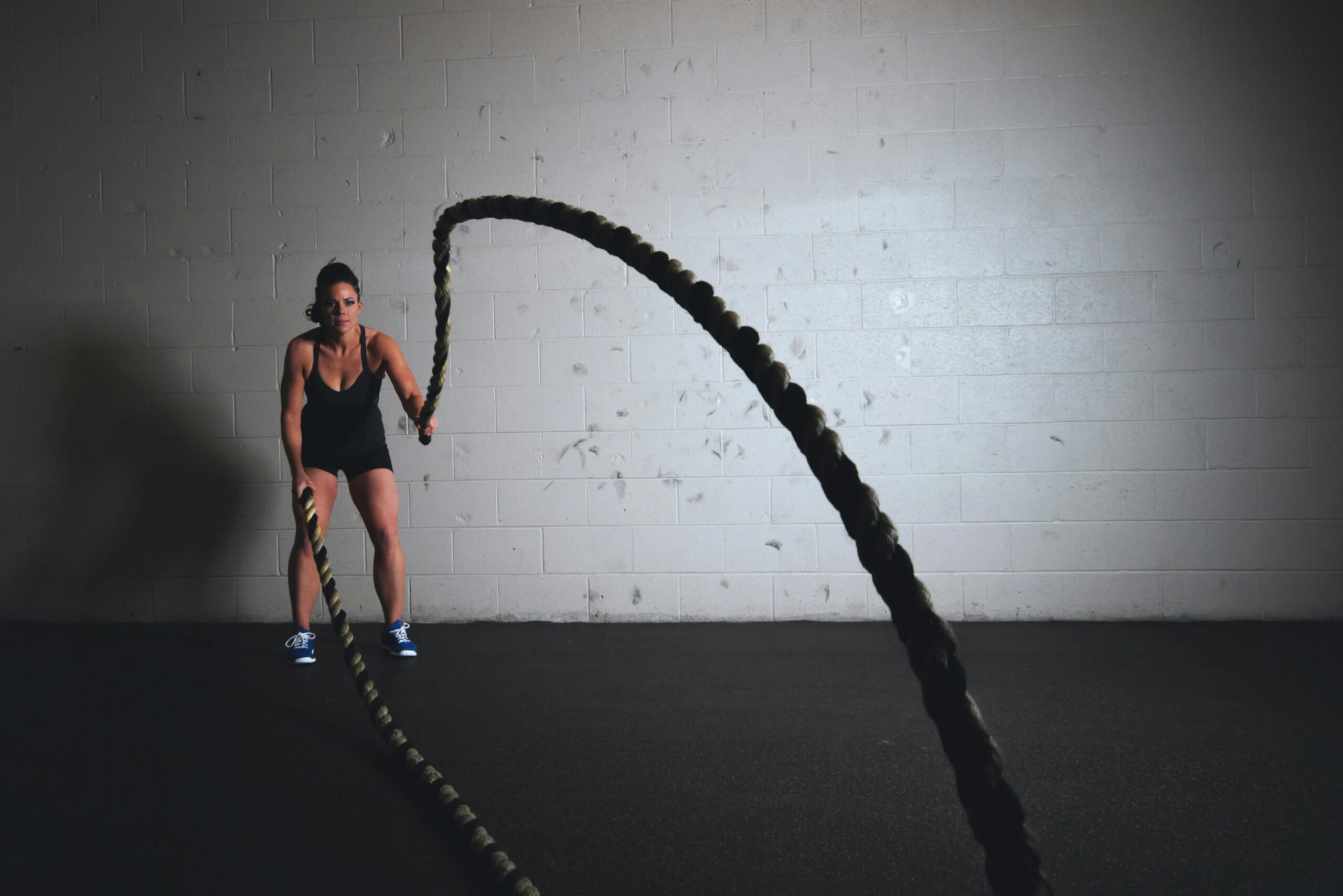Table of Contents
Embarking on a fitness journey is exciting, especially when you’re motivated to make positive changes in your life. However, for beginners, the road to fitness can be tricky, and many fall into common traps that can lead to frustration, burnout, or even injury. Setting unrealistic goals, overtraining, or ignoring proper nutrition can significantly hinder your progress.
In this blog, we’ll explore some of the most common fitness mistakes beginners make and offer advice on how to avoid them, ensuring you set yourself up for long-term success.
1. Setting Unrealistic Goals
One of the biggest mistakes beginners make is setting goals that are far too ambitious. It’s easy to get excited and want to lose 20 pounds in two weeks or run a marathon after a month of training, but setting goals like these often leads to disappointment.
Why Unrealistic Goals Are Harmful:
- Frustration: When progress is slower than expected, it can lead to discouragement.
- Burnout: Trying to achieve too much too soon can cause physical and mental fatigue.
- Injury: Pushing your body beyond its limits can lead to strains, tears, or overuse injuries.
How to Set Realistic Goals:
Instead of aiming for drastic transformations in a short period, focus on achievable milestones. For example, if your goal is weight loss, aim for 1-2 pounds per week. If you want to build endurance, start with a smaller distance and gradually increase your running mileage. By setting realistic, attainable goals, you will stay motivated and consistently make progress.

Warm-ups and cool-downs are often overlooked by beginners, but they are crucial components of any workout. A proper warm-up prepares your muscles and joints for the physical activity ahead, while cooling down helps your body recover after exercise.
2. Neglecting Warm-Up and Cool-Down
Importance of Warming Up:
- Injury Prevention: A warm-up increases blood flow to muscles, making them more pliable and less prone to injury.
- Performance Boost: Warming up can improve your performance by increasing your range of motion and muscle readiness.
A simple warm-up could include 5-10 minutes of light cardio (like jogging or brisk walking) followed by dynamic stretches such as leg swings or arm circles.
Benefits of Cooling Down:
- Prevents Muscle Soreness: Cooling down helps flush out lactic acid buildup in the muscles, reducing soreness.
- Promotes Recovery: A proper cool-down, such as slow walking and static stretching, can improve flexibility and help your body return to its resting state.
3. Overtraining or Doing Too Much Too Soon
Many beginners believe that the more they work out, the faster they will see results. Unfortunately, doing too much too soon can lead to overtraining, which can set you back both physically and mentally.
Risks of Overtraining:
- Fatigue: Your body needs time to recover between workouts. Overtraining can lead to exhaustion and decreased performance.
- Injury: Pushing yourself too hard can result in injuries such as stress fractures, muscle strains, or joint pain.
- Burnout: Mentally, overtraining can lead to a loss of motivation, making it harder to stay consistent.
Start Slow, Build Gradually:
Begin with a few workouts per week and gradually increase the intensity and duration as your body adapts. Incorporating rest days into your routine is just as important as the workouts themselves, allowing your muscles to recover and grow.

4. Poor Exercise Form
For beginners, mastering proper exercise form should be a top priority. Poor form not only limits the effectiveness of your workout but also increases the risk of injury.
Consequences of Poor Form:
- Inefficient Workouts: Incorrect technique can lead to underworking the intended muscles, reducing the effectiveness of the exercise.
- Injury: Common injuries from poor form include back strains, joint injuries, and muscle tears.
Focus on Learning Proper Technique:
When starting out, it’s important to prioritize technique over intensity. If possible, work with a personal trainer who can teach you proper form. If hiring a trainer isn’t feasible, there are plenty of instructional videos online from certified fitness experts. Start with basic exercises like squats, lunges, push-ups, and deadlifts, and ensure you’re performing each with the correct posture.
5. Ignoring Strength Training
Many beginners focus exclusively on cardio exercises, such as running or cycling, often neglecting strength training. While cardio is excellent for burning calories and improving heart health, strength training is crucial for overall fitness and long-term progress.
Benefits of Strength Training:
- Increases Muscle Mass: More muscle mass boosts your metabolism, helping you burn more calories even at rest.
- Prevents Injury: Strengthening your muscles and joints reduces the risk of injury in everyday activities and other forms of exercise.
- Improves Body Composition: Strength training helps shape and tone your body, giving you a leaner appearance.
How to Start Strength Training:
As a beginner, you don’t need to jump into heavy lifting right away. Start with bodyweight exercises like squats, push-ups, and planks. You can also use resistance bands or light dumbbells to add extra resistance as you progress.
6. Focusing Too Much on the Scale
For many beginners, the number on the scale becomes the primary measure of progress. While weight can be an indicator of fitness improvements, it’s not the only factor to consider. In fact, focusing too much on the scale can be misleading and demotivating.
Why the Scale Can Be Misleading:
- Muscle vs. Fat: As you build muscle, your weight may not decrease as quickly as expected. Muscle weighs more than fat, so even if you’re losing fat, the scale might not reflect it.
- Fluctuations: Your weight can fluctuate daily due to water retention, food intake, and other factors.
Other Ways to Measure Progress:
- Body Measurements: Track your waist, hips, and other body measurements to see changes in your body composition.
- Strength and Endurance: Pay attention to improvements in your strength, endurance, and overall performance.
- How Clothes Fit: Sometimes, you’ll notice changes in how your clothes fit even if the scale stays the same.

7. Not Prioritizing Recovery
Many beginners underestimate the importance of recovery. While it might feel like skipping rest days will speed up your progress, it’s quite the opposite. Your muscles need time to recover and grow, and rest is a crucial component of any fitness plan.
Why Recovery Is Important:
- Muscle Repair: Exercise creates tiny tears in muscle fibers, which need time to heal and grow stronger.
- Prevents Injury: Overworking your body without proper recovery increases the risk of injury and fatigue.
- Improves Performance: Taking time to rest allows your body to recharge, leading to better performance during workouts.
Tips for Effective Recovery:
Incorporate at least one rest day per week and focus on active recovery like light walking or stretching. Also, ensure you’re getting enough sleep, as it’s during sleep that your body repairs muscles.
8. Poor Nutrition Choices
No matter how hard you work out, poor nutrition can sabotage your fitness efforts. For beginners, it’s important to fuel your body properly to support your workouts and recovery.
Common Nutrition Mistakes:
- Skipping Meals: Skipping meals can lead to energy crashes and poor performance during workouts.
- Lack of Protein: Protein is essential for muscle repair and growth, so not consuming enough can hinder your progress.
- Relying on Processed Foods: Processed foods are often high in sugar and unhealthy fats, which can negate the benefits of your workouts.
Tips for Balanced Nutrition:
Focus on whole, nutrient-dense foods that provide the necessary fuel for your workouts. Incorporate lean proteins, whole grains, healthy fats, and plenty of fruits and vegetables. Meal prepping and staying hydrated are also important to keep your energy levels up.
9. Lack of Consistency
Consistency is the key to success in fitness. Many beginners start strong but quickly lose motivation when they don’t see immediate results. Fitness is a long-term commitment, and it’s important to stay consistent even when progress seems slow.
How to Build Consistency:
- Create a Routine: Schedule your workouts into your daily routine, just like any other appointment.
- Set Achievable Goals: Break your fitness goals into smaller milestones that are easier to achieve.
- Find Accountability: Whether it’s a workout buddy, a coach, or a fitness app, find ways to hold yourself accountable.
10. Comparing Yourself to Others
It’s easy to fall into the trap of comparing yourself to others, especially in the gym or on social media. Seeing others who are further along in their fitness journey can make you feel inadequate, but it’s important to remember that everyone’s progress is different.
Why Comparison is Harmful:
- Demotivating: Comparing yourself to others can make you feel like you’re not making progress fast enough, which can be discouraging.
- Unrealistic Expectations: People’s bodies and fitness levels vary widely, and what works for one person might not work for another.
Focus on Your Own Journey:
Instead of comparing yourself to others, track your personal progress and celebrate your achievements. Everyone starts at a different place, and what matters most is how far you’ve come on your own journey.
Conclusion https://fitnessblog4u.com/wp-admin/post.php?post=196&action=edit
Starting a fitness journey is both exciting and challenging, but by avoiding these common beginner mistakes, you’ll set yourself up for long-term success. Remember, progress takes time, and consistency is key. Focus on learning proper techniques, setting realistic goals.


